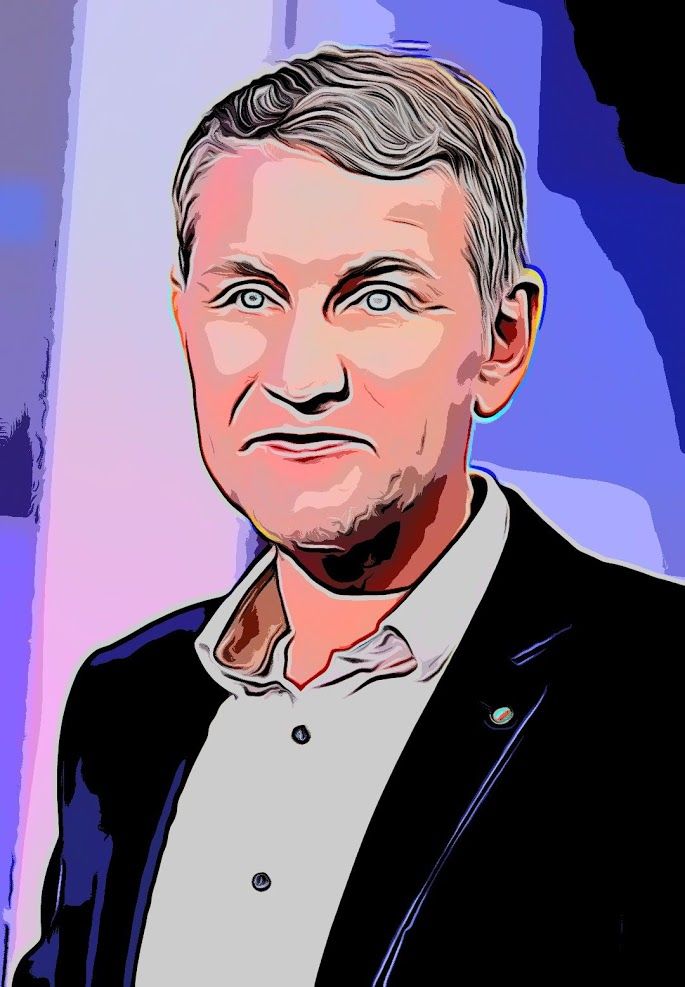Earlier this year, Jörg Meuthen resigned from his post as co-leader of the AfD and, like two of his predecessors, also left the party. Meuthen, an academic economist, had become a co-leader in 2015 following Lucke’s ouster and had been billed as a representative of the AfD’s ‘moderate’, economically liberal and fiscally conservative faction. Like Petry (Petry does a Lucke, or: The AfD splits again (whimper edition), he had the tacit support of the party’s radicals lead by Höcke. Meuthen subsequently attended meetings of the radicals and was quite friendly with them. Only when parts of the party came under surveillance did he try (largely in vain) to kick (some of) them out of the party.
Meuthen’s departure left Chrupalla, the remaining co-leader, in charge. As far as I know, he has never been a member of the infamous ‘wing’ group, but he certainly has the support of many radicals and Easterners (there is a certain overlap). His leadership can best be described as unremarkable. Over the last months, Chrupalla has come under some pressure, mostly from the remaining ‘moderates’ who blame him for the party’s dwindling electoral support. While I think that there are structural reasons for this decline, he is most certainly not an electoral asset.

Before the party conference, Chrupalla came under even more pressure from both macro factions of the party. While one (little known) ‘moderate’ announced that he would run for the position vacated by Meuthen, another (even lesser known) challenged Chrupalla directly, though that always looked like a very long shot. Much more ominous was that Höcke suggested to reduce the number of leaders to one and also hinted that he could finally ‘join the national executive’. While a straight run for the leadership by Höcke was always unlikely, Chrupalla would have struggled to find sufficient support to secure a sole leadership post.

In the end, not much happened. The party conference did change the constitution and introduced sole leadership as an option for the future, but at the same time, the delegates decided to elect two leaders this time round. Höcke pushed for both motions and so remains in his favourite role as the party’s eminence grise (or bête noire?). Chrupalla was re-elected – with a lousy 53 per cent of the vote. He is joined by Alice Weidel, who already co-leads the parliamentary party with him.
While this might look like a consolidation of power, it is nothing of this sort. Höcke will remain both influential and unaccountable. He may or may not reach for the sole leadership in a couple of years. Weidel got 67 per cent, hardly a ringing endorsement. Both she and Chrupalla are moderately unpopular within their party – people without qualities, apart from being halfway acceptable to the various factions. They are weak leaders, not by accident but by design. Alongside its dual leadership structure (an organisational feature otherwise only found in Germany’s leftist parties), the AfD retains its commitment to high levels of intra-party democracy anarchy.
Discover more from kai arzheimer
Subscribe to get the latest posts sent to your email.

Likes
Mentions
Reposts